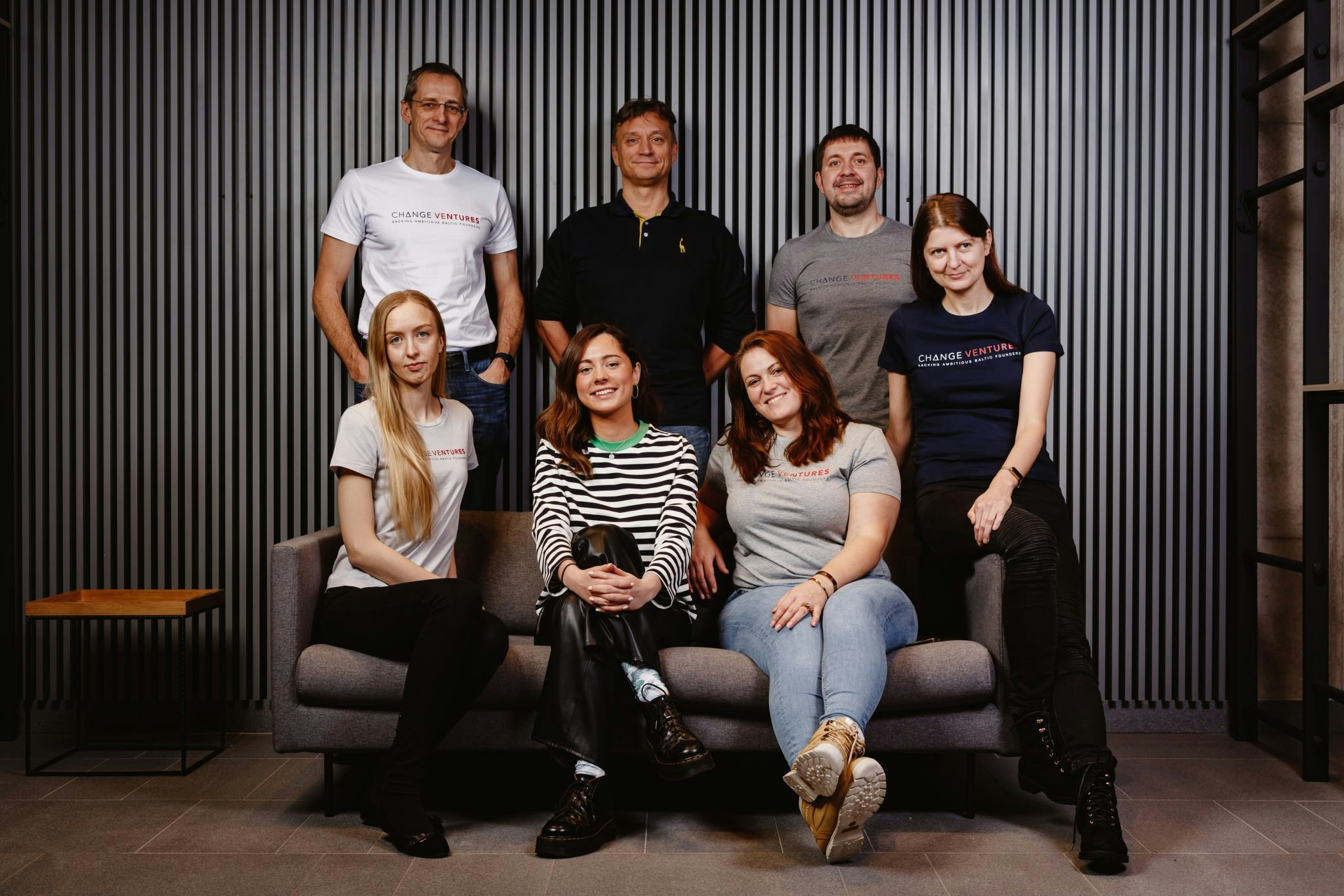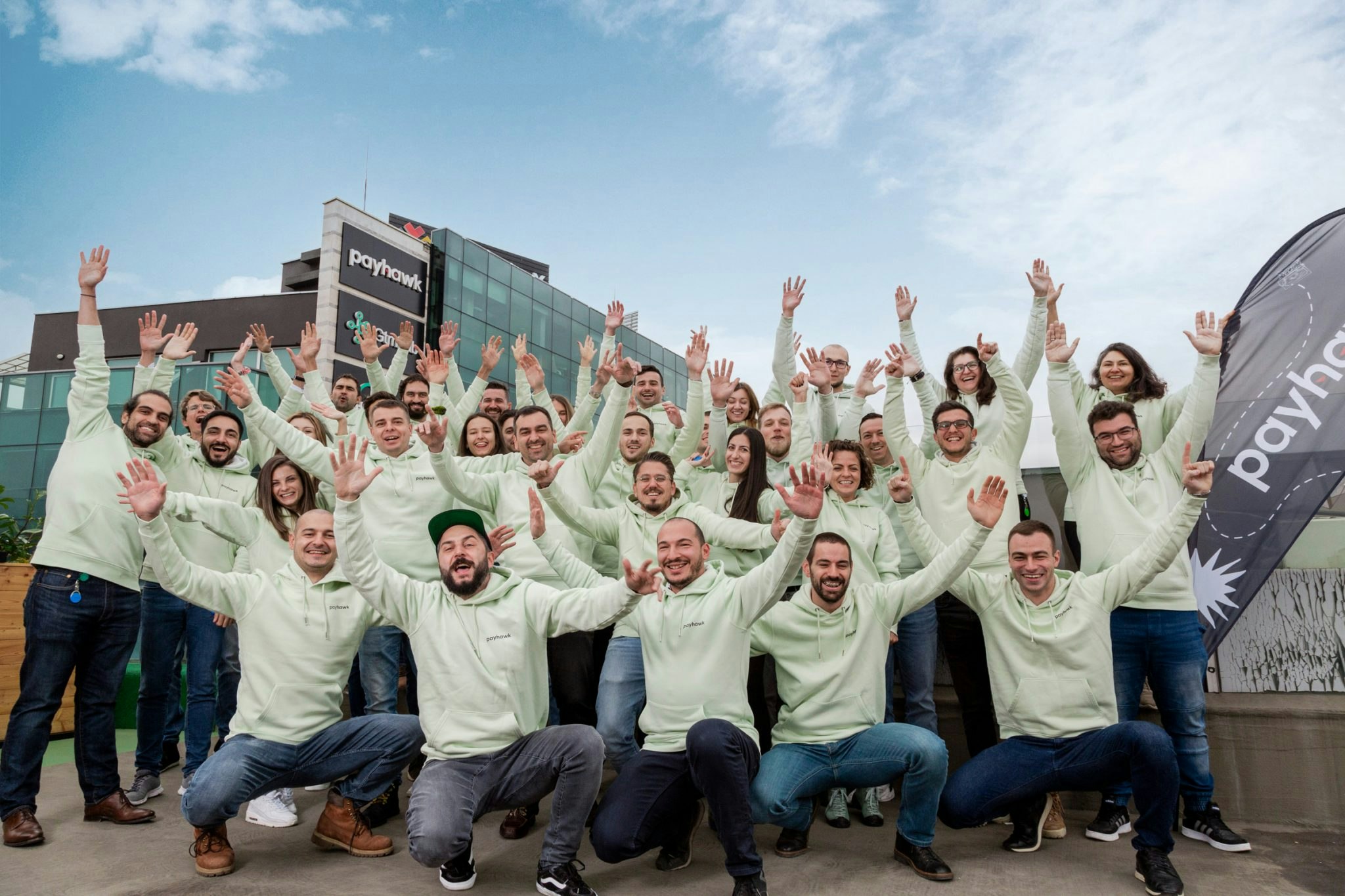10 years ago, the startup ecosystem in the Baltics — Latvia, Lithuania and Estonia — was almost nonexistent. But today the region is home to over 5,000 startups and scaleups, according to Dealroom.
“Barely 6m inhabitants, but already 12 startup unicorns. That’s the story of Baltics,” says Marija Rucevska, founding partner at Helve, an open innovation management company, and board member of Techchill, a nonprofit supporting the Baltic ecosystem that also hosts the region’s main startup event in Riga.
“The size of the ecosystem is just right,” she tells Sifted. “It’s big enough to offer you all the perks of an international community of entrepreneurs, yet it’s sufficiently small and cosy which provides you with ample networking opportunities.”
Yet, there’s still room for growth. We’ve crunched the data and spoken to the experts to find out how the underdog ecosystem grew — and where it could be going next.
1/ Baltics startups raised a record €649m in capital in the first half of 2021
A record €649m in capital was raised in the first half of 2021 — three times the amount raised during the same time period of the previous year. The findings show a maturing startup ecosystem in the region and a post-Covid funding dip recovery.
“Back in the day, there were hardly any startups in the Baltics. Now we’re speaking about one of the fastest-growing ecosystems,” says Jone Vaituleviciute, a partner at Startup Wise Guys, the oldest accelerator in the Baltics.
“This is where we start catching up with other ecosystems. We have a big influx of foreign funding coming at Series C and beyond and we have sufficient capital now in the pre-seed and accelerator angel stages.”
Among these investments are some high-profile VC funds, including Tiger Global, which just raised $100m for Estonia’s sixth unicorn and identity verification startup Veriff, and Sequoia, which led Estonian unicorn Bolt’s €628m raise in January.
Back in the day, there were hardly any startups in the Baltics. Now we’re speaking about one of the fastest growing ecosystems
"At the moment we're seeing world-class US and EU VC firms starting to put money in Baltic startups," says Rucevska. “This has been one of the reasons behind the excitement and growth trajectory we have taken."
Rucevska adds that Latvia, home to a growing startup ecosystem in its capital, Riga, had a particularly strong year last year.
“2021 has been the best year for the region, especially Latvia,” she says. “Our startups have never had such a good year in terms of investment, they have raised more than €247m. That’s the same as in the previous ten years combined.”
2/ Estonia has the most unicorns per capita in Europe
A recent Dealroom report showed that Estonia is number one in the world in terms of startups per million inhabitants. According to Invest in Estonia, Estonia also has the most unicorns per capita in Europe.
Vytautas Kubilius, who is leading Google’s business and operations in the Baltic region, says this can be explained by “the Skype effect”. He says the capital coupled with the experience from the video calling platform’s exit has meant reinvestment for new startups.
“What started as Skype’s early HQ in Estonia spawned a vibrant startup ecosystem and set the flywheel spinning of entrepreneurs becoming angel investors and funding other early-stage startups,” he says.
“Estonia had a couple of such cycles already from Skype to Wise, from Wise to Bolt and so on. Interestingly enough, we are observing the same flywheels beginning to spin in Latvia and Lithuania as have recently got their first unicorns.”
Kristjan Vilosius is founder of Estonian business software startup Katana, that raised a $11m Series A last February led by Atomico. He’s also an active angel investor in the Baltics and says the spillover effect of talent from successful startups has boosted the ecosystem.
What started as Skype’s early HQ in Estonia spawned a vibrant startup ecosystem and set the flywheel spinning of entrepreneurs becoming angel investors and funding other early-stage startups
“The story of Katana is very similar to the second and third wave of startups coming into the market in the Baltics. A lot of talent from the existing unicorns helped us along the way,” he says. “10-15% of Katana is ex-Skype. We have a lot of team members also from Pipedrive.”
3/ Latvia is ranked the most “startup-friendly” country in Europe
According to VC firm Index Ventures, new legislation in Latvia into stock option policies — where employees can get equity of a company — have made the country the most “startup-friendly” in Europe.
“We have very favourable conditions when it comes to stock options policy,” says James Berdigans, founder of Printify, a print-on-demand and dropshipping platform and one of the first companies in Latvia to grant stock options to its employees. “This makes it easier for startups to attract and retain the talent we need to succeed and for new companies to be founded.”
We have very favourable conditions when it comes to stock options policy
But on the flip side, local talent can get tapped out quickly with startups competing for the same pool of people.
“The number one roadblock is the same roadblock that everyone else has, which is talent,” says Andris Berzins, managing partner at VC Change Ventures. “But what we are seeing is a clear trend of expats being brought in… and also diaspora returning, especially to startups.”
4/ Lithuania’s life science sector is the fastest growing in the EU
While local talent can be scarce, Vaituleviciute says the small size of the Baltics is a positive, because startups are born with a global mindset from day one.
“The founders have this very international mindset because the markets are so small you’ll never make anything if you just focus on that,” she says. “I think that’s a big difference from other ecosystem founders.”
One booming sector with an international reach is life sciences in Lithuania — it’s the fastest growing in the EU with an annual growth of 22%. With nearly €2bn in revenue, its top export destinations were the US, Germany and China in 2020.
The founders have this very international mindset because the markets are so small you’ll never make anything if you just focus on that
Rucevska says recently Latvia has also been investing heavily in healthtech, alongside climate tech.
“Latvian startups historically are most represented in fintech, hardware, robotics,” she says. “As well as lately we have been ranking pretty high in sustainability (climate-tech solutions) and healthtech.”
But Berzins says fintech still reigns in the region.
“Fintech is definitely one of the biggest segments. Estonia had more of the payments related startups with Wise obviously being the biggest example,” says Berzins. “Latvia has more of the credit lending-related startups… then Lithuania has crypto.”
TechChill 2022 is right around the corner
If you want to learn more about the booming startup ecosystem in the Baltics, TechChill 2022, the biggest startup event in the region, is right around the corner.
From April 27 to 29, over 2,300 attendees, over 300 startups and over 200 investors will come to Riga, Latvia to listen to keynote speakers including Merit Valdsalu, cofounder and chief executive of Estonian climate tech Single.Earth, Ethan Pierse, director at The CryptoAssets Institute and Jose Iglesias, senior director of community at Techstars.




